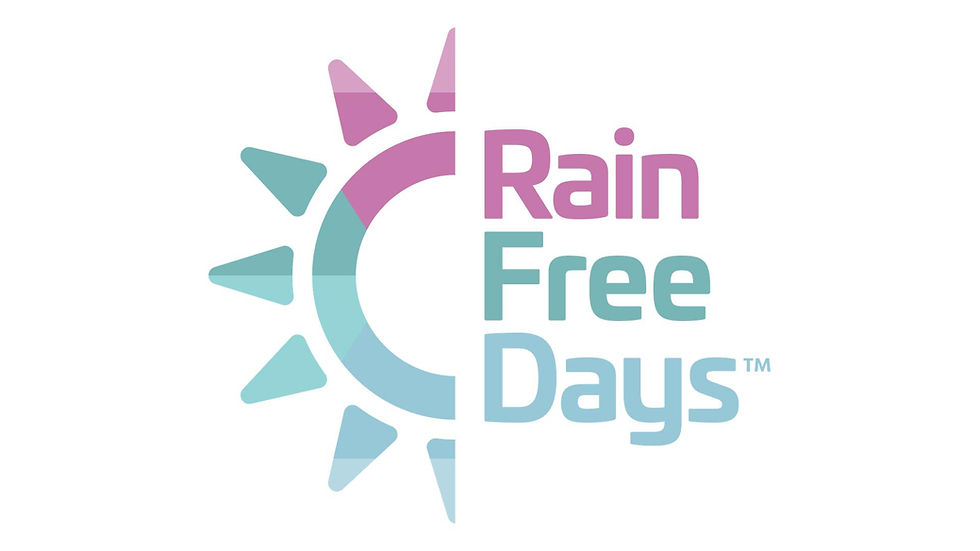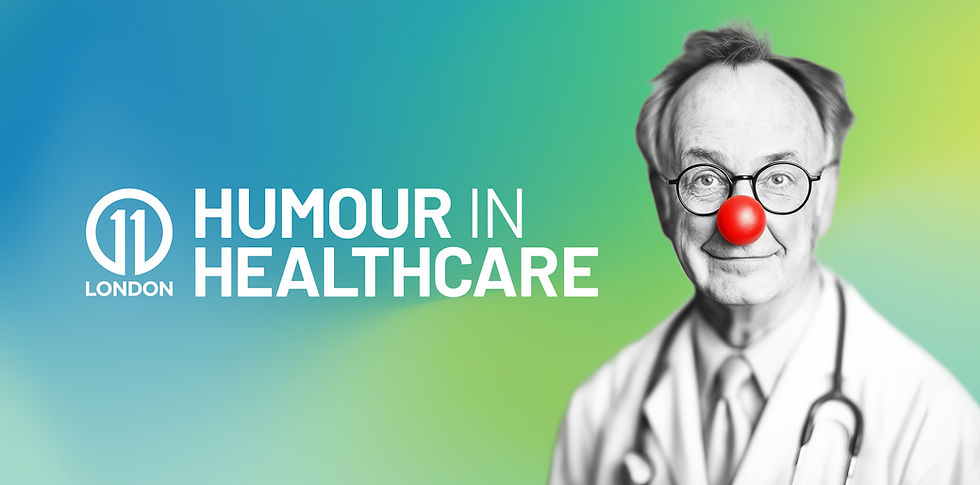11 forecasts for 2019
- matthewhunt123
- Feb 14, 2022
- 7 min read
Here at 11 London Towers we’re harnessing our New Year energies to forecast the issues likely to impact on us all in 2019. Contributed by different members of our team, these 11 predictions combine last year’s learnings, expert commentary from the fields of health and humanity and analysis of news and current affairs. We’d love to hear your thoughts on the year ahead, so do get in touch via social or Twitter.

1. Health goes online and outside
Digital will become the new norm, with NHS appointments made online, and face timing sessions with consultants via Skype and smartphones. The NHS 10-year plan advocates saving time and costs by making the most of technology – such as wearable devices which keep patients out of hospital by flagging problems before they become serious. Meanwhile, rather than dishing out tablets, doctors will increasingly turn to ‘social prescribing’ such as dance or art classes, to help us combat loneliness and inactivity and head off illnesses like depression.
Need to know: Organisations such as smart tech companies and social enterprises, who plan, deliver and communicate success in these trends, will have increasing opportunities to shout about their expertise and reinforce health and wellbeing across communities.

2. Contactless connects for charity
Whilst ‘online’ donations, made reactively on charity websites and through platforms like JustGiving, are the norm for most fundraising campaigns, the same cannot yet be said for the majority of spontaneous individual contributions on the street. Cash is still very much king and recent figures suggest over half of all donations still come this way.
However, with smartphone saturation, a growing cashless society where cards surpassed cash payments in 2017, and increasing experimentation in contactless donation technology like the Mayor’s supported Tap London campaign and initiatives by major charities, conditions are primed for more widespread adoption.
Need to know: It won’t be without friction: public sentiment towards data privacy and sector trust, challenges in delivering compliant supporter journeys and seamless integrated campaigns, and ROI implications when using emerging technology, will all be barriers to overcome as organisations work to prise open our ‘digital’ wallets.
3. Beating the drug-resistant superbugs
Last year, Public Health England reported the first case of gonorrhoea that couldn’t be cured by the normally used antibiotic, azithromycin. The rate of resistance is now at nearly 10%. Despite calls for reduced prescribing of antibiotics for fear that the last-resort drugs will stop working, the UK is still prescribing at almost double the rate of Scandinavian countries. Around 20% of such prescriptions are inappropriate. Issues also include over-usage of antibiotics in animals bred for food, which then enter our food system.
Need to know: Reducing your own usage of antibiotics is one way to fight back (ear-aches, for example, sort themselves within 3 days). You can also encourage the government and private sector to back the new breed of better, faster diagnostics that allow appropriate matching of drug to disease. And turning vegan could ultimately help by reducing the number of animals bred for food.

4. Transparency reigns
Public desire for greater transparency from charities will continue, meaning organisations have to keep getting better at showing where money goes, how organisations are staffed and programmes are delivered, and their real impact. Charities should expect further press attention here and be prepared to counter negative stories with openness and clarity on the brilliant work they are doing. Likewise, the pharmaceutical industry is under increasing pressure to de-mystify drug development and open up about drug costs and clinical trial results. Initiatives such as the European Patients’ Academy (EUPATI) should ensure patients know more about how the industry operates, and will also contribute to research and public information.
Need to know: Organisations will fare best if they take a proactive approach: investing in impact reporting and PR, making digital content easily available and staying on top of conversations on social media.
5. Health gets personal
Medicine is not one-size-fits-all, yet traditional methods of diagnosis and treatment rely on generalisations and a most-likely to work approach. This should soon become a thing of the past, and our grandchildren will one day be incredulous that doctors once treated with what they ‘thought’ would work, rather than what they ‘know’ will work.
Need to know: Molecular or genetic profiling will take the doubt out of diagnosis and treatment, allowing doctors to customise medical care to an individual's unique genetic make-up. And it’s already happening in the fields of oncology, rare and undiagnosed diseases, and infectious disease.
'Next generation diagnostics will provide the ability to diagnose people near their homes, in the community, and give results in less than twenty minutes. Drug susceptibility tests will also mean right-first-time prescribing so that patients are not needlessly medicated, but instead given treatment they can be confident will work.’ - Jonathan O’Halloran, Co-founder and CSO, QuantuMDx
6. The future is film
We don’t need to tell you that video is now the most popular form of online content. It’s been shown that viewers absorb 95% of messages transmitted in video form, as opposed to 10% in plain text. Clearly, charities have much to gain from video.
It may seem like a big investment. But done well, and utilised for multiple purposes, you’ll get a rich ROI. In 2018, working with Storypartners, 11-London filmed Sepsis survivor Matt Parkes for the UK Sepsis Trust; the original 2 minute film has been repurposed for social media, used to raise awareness (it was even shown at the Grand National!) and turned into a DRTV ad.
Need to know: Don’t think of a single shoot as one film – but as material that can be adapted for fundraising, awareness, training, volunteer recruitment and social posts. With multiple uses, think what your film can do for you.
7. The wheelchair revolution
Using a wheelchair is like riding a bicycle — you must be constantly aware of what the chair is doing and look out for hazards. Without your direction, the wheelchair is an inanimate object. But new technologies will make them more dynamic and responsive. Eye-gaze control will respond to the user’s intentions. Sensors will detect and react to hazards automatically. Capturing and analysing data on users will help people manage their daily activity and risk of injury - flagging when someone is at risk of pressure sores, for example, which cost the NHS between £1.4 and £2.1 billion per year. People aged 65 and over are the fastest-growing age group in England, and projected to grow by nearly 60% over 25 years.
Need to know: As the number of people born with or who have acquired an impairment grows, the demographic shift will create an increasingly attractive market opportunity to ensure they can fully participate in society, which will break down barriers to innovation.
8. Investing in Testing
We know testing is the engine of good marketing, but in 2019 we expect to see more charities properly commit to this. Social media gives us the perfect environment to prototype concepts, messages and content, but to use it successfully will require, for some, a shift in mindset and a more concerted effort. Not everything will work, but regularly learning what does and doesn’t is gold dust in this rapidly changing environment.
Need to know: Increasingly forward-thinking charities are allocating a proportion of their marketing spend to ongoing social testing, and using this to inform, hone and grow their programmes.
9. Anti-plastic gets fantastic
So you’ve shunned single-use plastic cups. It may feel like a drop in the ocean, set against the global menace of plastic pollution. But 2019 looks set to be a year of coordinated action and 11-London clients are leading the charge.
Campaign to Protect Rural England co-founded the successful campaign for a 5p charge on plastic bags and is now fighting to ban all single use plastics, while advising the Government on practical strategies to achieve this. World Animal Protection set up the world’s largest alliance to combat Ghost Gear, the discarded fishing waste turning our oceans into ‘plastic soup’ and decimating marine wildlife. Meanwhile, the Centre for Alternative Technology leads by example in teaching and advocating the use of sustainable and recycled materials; their own magazine and catalogue are now free of plastic wrap.
Need to know: As more individuals, businesses, governments and organisations do their bit to fight plastic pollution, this could be the year we start to win.

10. The ‘B’ word….
Yes, Brexit is continuing to occupy the airwaves - and people hours - for many organisations dealing in health and humanity. Up until 29 March, the business focus is on balancing the risk of alarm, with evidence of good groundwork for No-Deal preparations. Questions will be asked about what is being doing to manage the impact on your work, what this will cost, and how to ensure nothing is at the expense of customers, consumer or clients.
Need to know: Someone in your organisation is already having these detailed conversations. Marketing and communications will need to tap into these discussions and produce clear updates across social media, internal comms and c-suite briefings, to ensure stakeholder confidence.
1. And the salve for uncertainty…colour
When it comes to colour, 2019 promises soothing, grounding hues. One of our 11 London team, Martha Roberts (health and wellbeing journalist, also author and blogger at The Colour File), explains that colour choices don’t happen by accident – when deciding which ones are going to be ‘in’, colour forecasters look around and gauge what’s happening in the world around them. Their suggestions are informed by all manner of things, from social media trends and popular culture through to global politics. Two key colours for 2019 are Pantone’s Living Coral and Dulux’s Spiced Honey; both are soft, forgiving hues designed to act as a salve to the turbulence and uncertainty of world politics.
Need to know: Expect to see more of these ‘big hug’ colours as the year progresses, hopefully combined with the bright, strident hues that infused our world in the past 18 months.





